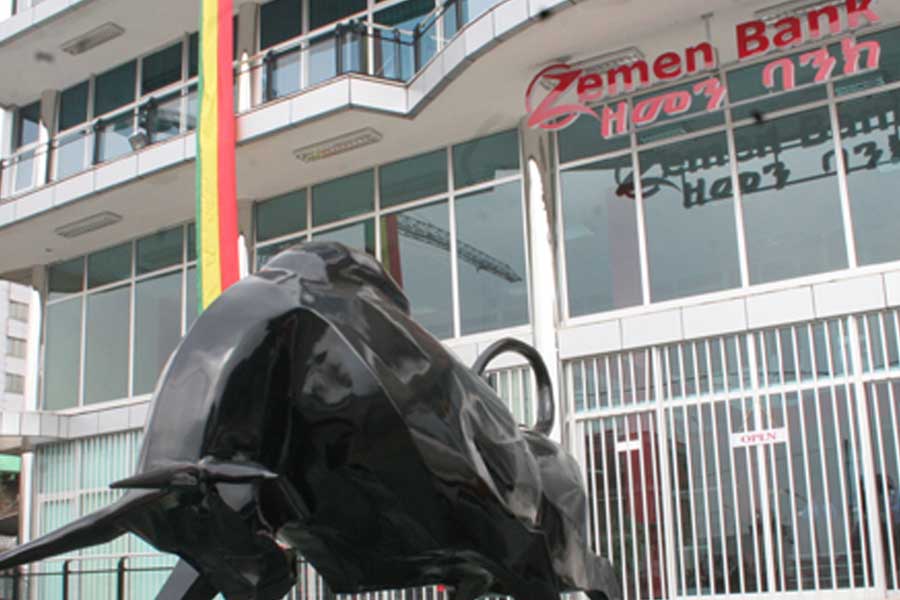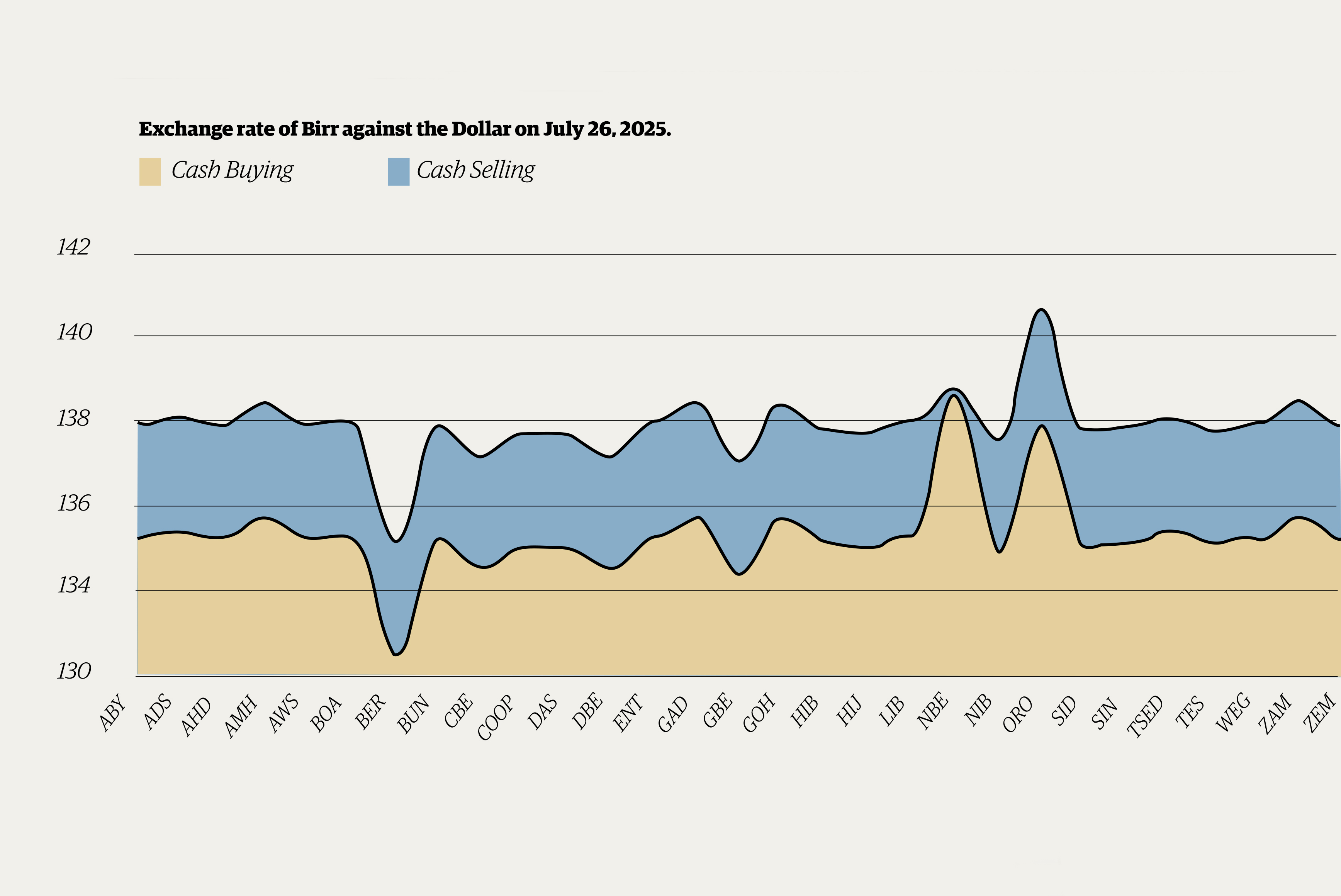
Fortune News | Dec 26,2020
A joint venture is inching closer to erect Ethiopia's first ATM card manufacturing plant, presenting an opportunity for commercial banks to save millions in foreign currency spent every year on the procurement of debit cards.
MK Ethiopia, a joint venture between Vietnam-based MK Digital and Neutronet Plc, a local company, has secured an investment license to erect a card manufacturing plant on a 3,000sqm plot of land in Addis Abeba. Slated to begin operations next year, the plant will comprise two manufacturing units dedicated to ATM, SIM and identificantion cards, each projected to consume eight million dollars.
Financial institutions and Ethio telecom are the major buyers of chipped cards in Ethiopia. Banks issue an estimated five million ATM cards annually, spending millions of dollars procuring the cards from foreign suppliers. A single ATM card may cost between one and two dollars on the global market. MK Ethiopia hopes to cut this by nearly half once the manufacturing plant goes operational.
MK Digital was established in Vietnam almost a quarter of a century ago. Over the years, the company has manufactured 60 million cards in its facilities in Vietnam, while Neutronet has been engaged in networking, security, training and consultancy work for the past 22 years.
The joint venture executives are eyeing the Ethiopian market not just for its potential but to use it as a springboard to expand into other East African markets, according to Graham McKay, a cybersecurity infrastructure engineer at MK. Neighbouring Kenya, where there are 44 commercial banks, is home to more than 11 million cardholders. East Africa hosts over a hundred commercial banks but without card manufacturing plants.
The first manufacturing plant in Africa was opened in 2015 in Nigeria.
"We hope to network with the East African market once we establish a foothold in Ethiopia," McKay told Fortune.
The plant will have the capacity to manufacture up to 4.5 million cards in a single shift. This will enable the country to reduce the forex spent to import cards by 45pc from over 7.5 million dollars yearly (equal to 337.5 million Br based on current exchange rates). The raw materials needed for manufacturing cards, such as polyvinyl chloride (PVC) and chips, will be imported as these are not readily available in Ethiopia, according to Tsegay Habtu, managing director at Neutronet.
ATM and SIM card manufacturers are required to meet international requirements.
“We already have all the software and certifications needed," said McKay. "It'll make it easier to establish a business in Ethiopia.”
A changing trend in the global market is the use of contactless cards. Since the onset of the COVID-19 pandemic, an increasing number of users have been inclining towards contactless cards. In a study conducted last year, Visa sampled 2,000 banking customers in nine countries across four continents and found that 60pc of them prefer to use contactless cards whenever possible.
Learning from the global experience, the Bank of Abyssinia has recently begun issuing contactless debit cards, deploying hundreds of compatible ATMs.
Although no card manufacturers are operating in the country, industry players have had success in personalising imported cards over the past few years. The personalisation process entails branding the imported plastic cards and uploading the personal information of the card recipient.
EthSwitch, the national switch operator established in 2011, imported card personalisation machines six years ago and serves Oromia International, Lion, Bunna, Debub Global, Enat and Addis International banks. The Commercial Bank of Ethiopia (CBE), the largest user of debit cards, has also been doing the same. It imports plastic cards with chips before personalises them domestically, disclosed Fikresilassie Zewdu, vice president for branch and digital banking at the CBE.
The CBE spends millions of dollars every year acquiring cards, buying seven million units over the past year alone.
"It's a big opportunity for the manufacturers and the banks as well," said Fikresilassie.
IDEMIA, a tech firm based in France, is known for supplying debit cards to the Ethiopian market, while NCR, a century-old financial technology provider, is the dominant player in the imports of ATMs.
The number of debit cardholders has increased by five million annually since 2016, reaching 21 million in June 2021, while ATMs have reached over 6,000, double the figure from 2013.
Despite this growth in card and ATM use, experts observe habits shifting towards a preference for mobile banking. In Africa, where card infrastructure is underdeveloped, mobile money and mobile wallets are widely used, according to an executive at the EthSwitch.
Endashaw Tesfaye, a digital financial services expert, leading digital programming at the United Nations Capital Development Fund (UNCDF), sees cards are predominantly utilised for withdrawals, while mobile banking is increasingly used for transactions and payments. He foresees mobile banking to take the lead in two to three years. With the growth of mobile devices, enhanced networks, and the entry of two telecom operators in the market, Endashaw sees that the SIM card business could have better potential.
However, if banks decide to introduce credit card services, there could be a huge rise in demand, according to Endashaw.
Room keycards in the hospitality industry, which is expected to witness the opening of hotels with over 4,000 rooms in the next half a decade, might also be a good source of business.
PUBLISHED ON
Oct 02,2021 [ VOL
22 , NO
1118]

Fortune News | Dec 26,2020

Radar | Sep 21,2025

Radar | Jun 08,2019

Radar | Nov 06,2021

Fortune News | Jul 13,2025

Money Market Watch | Jul 27,2025

Sponsored Contents | Jul 05,2021

Fortune News | Jun 04,2022

Radar | Jul 27,2025

Editorial | Mar 25,2023

Dec 22 , 2024 . By TIZITA SHEWAFERAW
Charged with transforming colossal state-owned enterprises into modern and competitiv...

Aug 18 , 2024 . By AKSAH ITALO
Although predictable Yonas Zerihun's job in the ride-hailing service is not immune to...

Jul 28 , 2024 . By TIZITA SHEWAFERAW
Unhabitual, perhaps too many, Samuel Gebreyohannes, 38, used to occasionally enjoy a couple of beers at breakfast. However, he recently swit...

Jul 13 , 2024 . By AKSAH ITALO
Investors who rely on tractors, trucks, and field vehicles for commuting, transporting commodities, and f...

Oct 18 , 2025
The political establishment, notably the ruling party and its top brass, has become p...

Oct 11 , 2025
Ladislas Farago, a roving Associated Press (AP) correspondent, arrived in Ethiopia in...

Oct 4 , 2025
Eyob Tekalegn (PhD) had been in the Governor's chair for only weeks when, on Septembe...

Sep 27 , 2025
Four years into an experiment with “shock therapy” in education, the national moo...